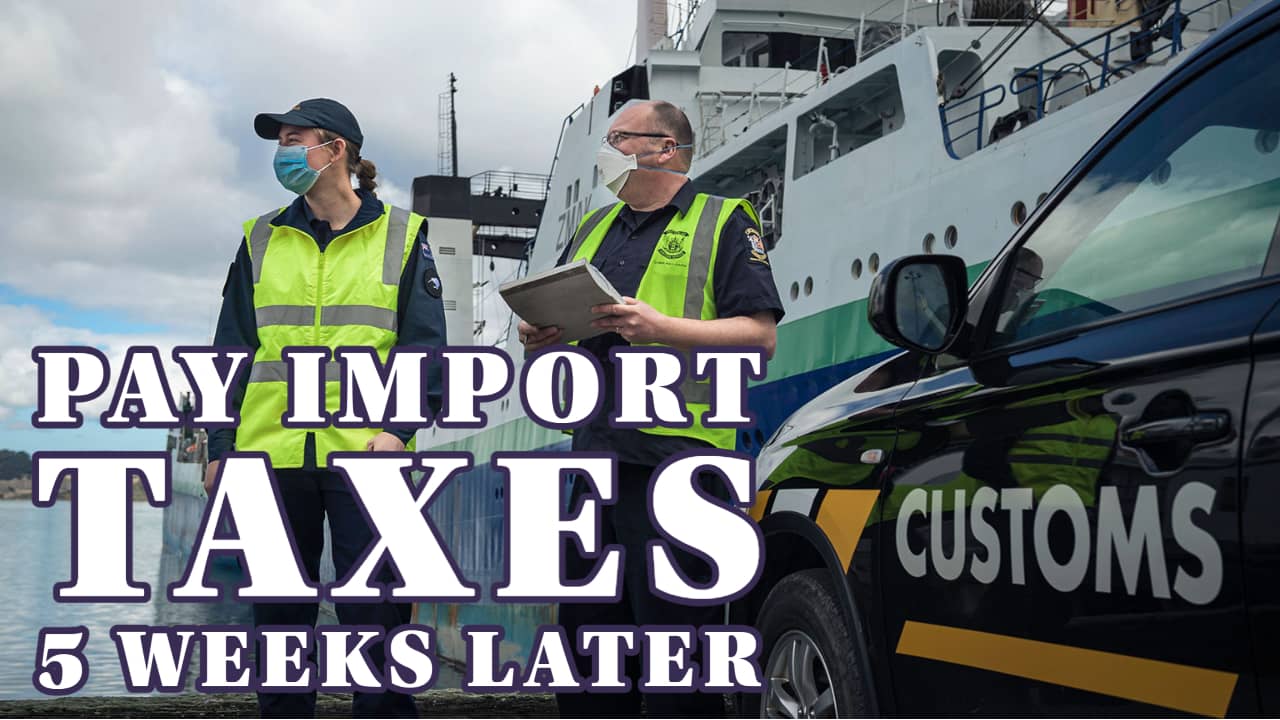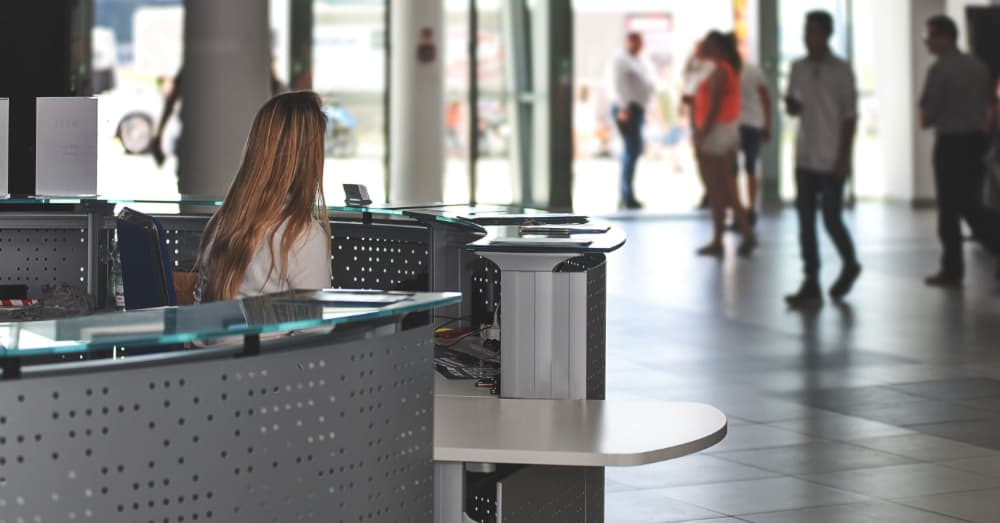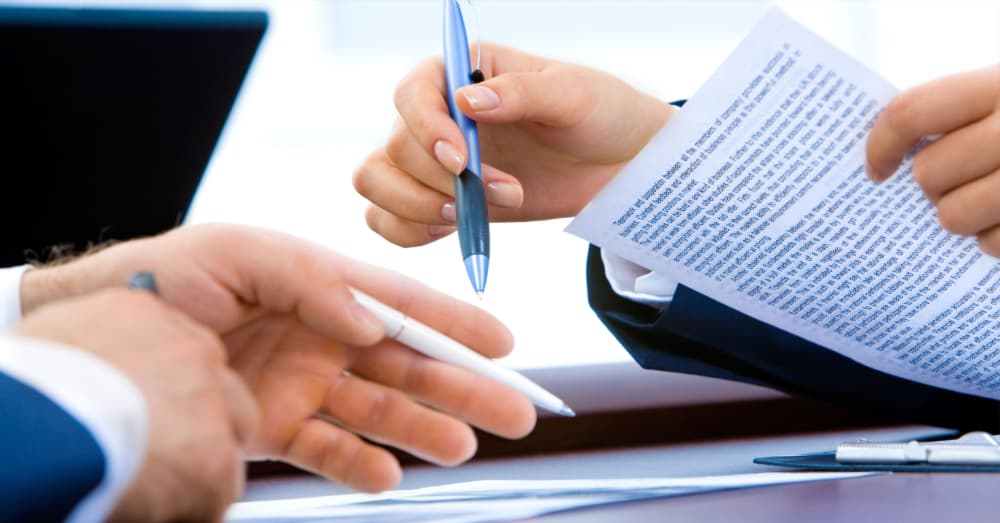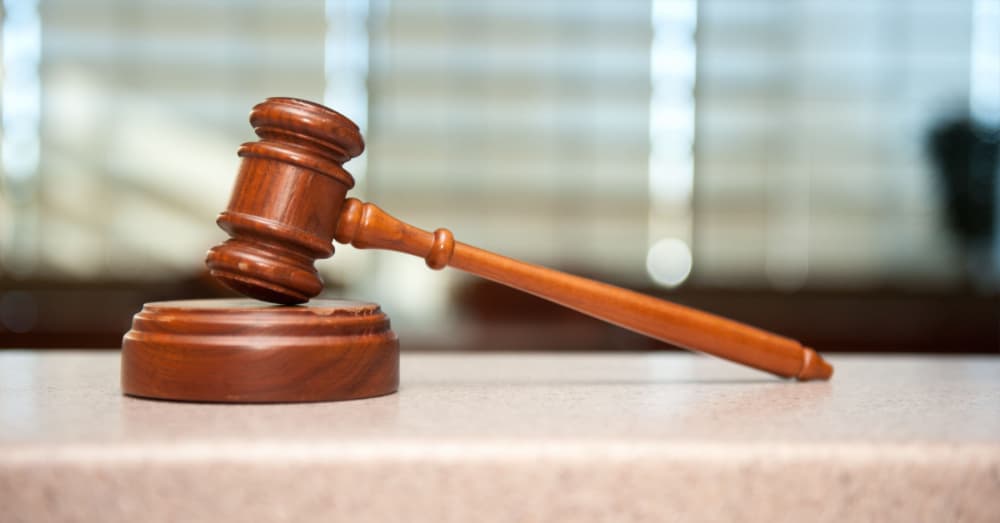
3 Tips On Importing Goods Into New Zealand (Avoid These Hidden Costs)
13-minute read (27-minute watch)
If I had this info before I imported for the first time I’d saved lots of time & money
📚 YOU WILL LEARN:
- How NZ Customs or NZ MPI Biosecurity will charge you and some hidden costs that you may not be aware of
- What are the common mistakes in the transport documents
- How you can save money on freight
- Other Practical Advice that Will Help You Grow
Max: Today, we will talk about three tips on importing goods into New Zealand while avoiding costly mistakes.
Let’s begin with NZ customs and MPI Biosecurity charges, or other costs related to those government agencies.
There are duty-free agreements with many countries. What NZ importers do not realize is that they have to follow strict rules to make sure they can claim these duty-free benefits.
Here’s an example of importing goods from Australia. The common knowledge is that if products are manufactured in Australia and go out of Australia, then you shouldn’t be paying any duties.
However, this is not the case in many situations.
For instance, if you import goods from Australia, but they were manufactured in a European country that NZ doesn’t have a free duty trade agreement with, then there is a big chance you will have to pay extra duties.
Make sure you talk to your local customs broker and get advice before making any decisions.
Let’s move to other NZ customs-related costs that you may not be aware of. The government agencies tend to pay more attention to new importers or those who started importing recently.
They may ask you to arrange an X-Ray of the container or somehow inspect your goods to make sure the contents are the same as declared on the paperwork.
Now, imagine the logistics of organizing an X-Ray. If it is to be done at the port, you will have to book a space there.
You have to move the container or the goods from one area to another area, and that costs money. You’re going to pay roughly $200 for port movements.
If you haven’t spoken to your customs broker in advance, you may have to pay for storage, since you’ve got a limited time to organize it.
On average, ports allow 3-5 days for you to sort out your paperwork and make sure your goods are moving out of the port. Some ports will enable you to enjoy extra free storage time; some don’t, because they could be busy and short on space.
That’s another fee that you have to budget for. Be careful and timely organize all your paperwork.
If you don’t complete the paperwork correctly, NZ MPI Biosecurity will ask you again to arrange an inspection to make sure the goods are clean. That’s another biosecurity-related cost.
For example, a common mistake is not completing the correct quarantine declaration, or not doing it in the right way, or using an old form, which is missing some questions.
MPI officers will not be happy about it, because they have to follow the rules. Inspections will cost you money as well.
In some situations, they charge $100 an hour to check the goods and make sure they’re clean and comply with NZ biosecurity requirements.
Last but not least, there is a convenient free tool, which everyone can use to estimate import customs fees. It’s called What’s My Duty estimator.
Even though it’s designed for personal items, this is a useful calculator that can show you what your import taxes are going to be.
When you work with an experienced customs broker, they will be able to tell you if there is an exemption or a concession code on your particular commercial goods.
For example, if you import building materials, not many people realize that there is a duty-free concession code.
A junior broker or a non-informed person may use a standard code. You will end up wasting your money.
Once again, make sure you talk to a customs broker in advance and give them your paperwork. They will be able to tell you whether there is a concession code.
Sometimes, they may charge you for the consultancy.
However, if you have good relationships with your customs broker and regularly provide them with business, I’m sure they will be able to help you out and give you free advice here and there.

Max: Let’s move to another common mistake that people make when they import goods to New Zealand. I mean transport documents.
As a director of a company, you may buy the goods from a supplier and then rely on them to complete all the paperwork correctly to meet NZ customs requirements. Well, it may not be the case.
The suppliers are mainly concerned with the export requirement. Once they receive the payment, they’re less worried about what’s going to happen with your shipment, when it arrives in NZ.
NZ customs brokers receive many documents that are not completed correctly.
For instance, the importer declared on the paperwork is the director who paid for the goods.
However, the entity registered with NZ customs is the limited company, which is also owned by the same director.
It’s okay with you, but it’s not going to make sense legally for the government agency; they have to follow the rules.
If the names are not matching, it means that documents are not completed correctly. It will get you into trouble.
You want to make sure that all documents match, mainly if you import expensive goods.
If you don’t move your goods on time, you may be penalized on cargo storage. Your importing experience will suffer.
Make sure the consignee, the importer on the shipping documents, is the same entity on the commercial invoice and all other documents.
If it’s a registered company, then request your supplier to mention it everywhere. The importer is the one with the NZ customs client code.
Q: “Will an importer be able to recover duty already paid if incorrectly charged by a customs broker?”
Max: It is possible. Still, why would you want to get in trouble of doing that, reversing that, writing explanation emails to the government agency or the customs broker?
The government may consider that you’re trying to hide something, which may not be the case.
Once you’ve lodged all your customs clearances, it’s a lot harder to reverse everything back, if you suddenly realize there is a mistake.
Another tip for you. Check with your customs broker that you are paying the correct amount of taxes. There is always a risk of a human error, even with an experienced customs broker.
You are the importer. You are the one responsible for complying with all the regulations and tax rules.
Before you submit your documents to the customs and any other government agency, it pays you to check the main points.
You are busy with your work or your business, and you want to rely on a professional, like a customs broker or freight forwarder.
Still, for the first couple of times and on a random basis, you want to check the documents from your customs broker before they go to the customs – mainly when you import expensive items – to make sure that you do not overpay too much.
Q: “Could you advise what will be the estimated cost of importing items valued under $1000?”
Max: It depends on many factors. If the question is about the estimated cost of the customs fees, then allow at least 15% on import GST, NZ tax. That’s $150.
Customs transaction fee will be around $50. All up, you’re going to pay at least $200. You may also have to pay duty.
To give better advice, I need to have a look at all your documents. The costs will depend on the country of manufacturer, on the type of goods that you import, etc.
Q: “Where an importer can find information about the rules and document requirements to meet biosecurity standards?”
Max: There is plenty of free information online on government agency websites. The information, though complex, is well designed.
Go there, if you have time, and you want to go through all of that by yourself without having to pay anyone else.
The second option is getting a consultancy from a local experienced NZ customs broker, who will be able to ask the right questions and give you a couple of free tips.
They can also provide you with a more comprehensive answer, specific to your shipment, in return for a fee.
The third option is going to a local office of the government agency, like NZ customs or NZ MPI.
They have plenty of free brochures there. On a simple matter, they may also be able to give you an answer over the counter.

Q: “If you have three cartons from one supplier in air freight, will customs charge duty as one shipment, or will they charge on the three individual cartons?”
Max: If they all arrive at the same time, then yes, NZ customs will charge everything as one consignment. Some people try to split one shipment into three separate loads to avoid taxes.
NZ customs and NZ post, they are getting smarter about it. They have powerful computers to track all the importers and make sure they collect the taxes. They may stop all your shipments and ask you questions.
I think you should allow for your three consignments coming from one supplier to be treated as one if they arrive together or at the close date, if you’ve paid at the same time, and you’ve got one paperwork, one commercial invoice.
Q: “Do you help shipping/importing frozen goods from an EU country (Denmark)?”
Max: We do the customs clearance of frozen perishable items. We do not organize the freight of such items from Europe to New Zealand.
In many situations, your supplier would be able to book it directly with a shipping line if it’s a full container. You get a lot cheaper rates if you do it that way.
Although, you still should consult with a local NZ customs broker before paying for the freight or arranging any documents to avoid any mistakes.
It’s a lot more complex than just dry general cargo. You’ve got to meet extra food and safety requirements. You have additional paperwork from NZ MPI.
If you want to organize freight, talk to your supplier first. I’m sure they export regularly.
If they’ve done it before, they know the export requirements, they know how to package everything, and they will organize a shipment for you without any problems.
Q: “Just a note that GST requirements will change under the new law rule where GST will be automatically charged for the goods up to $1000.”
Max: If I’m not mistaken, it means that when the new rule comes into effect, you will not have to organize the customs clearance.
It’s going to be done automatically at the point of sale. You will pay the taxes when you buy goods, and then you simply receive them at your doorstep.
Q: “When does this come into effect?”
Max: It’s estimated to come into effect on the 1st of October this year.
As I’ve mentioned, it’s good to get advice from a customs broker in advance.
To avoid mistakes, you have to make sure you check all your paperwork before putting your goods inside a container, locking them up and importing them to New Zealand.
Don’t forget that the importer has to be precisely the same entity on all the shipment documents.
Q: “If you have several cartons per supplier from, say, 3-4 different suppliers, and they are shipped together from Australia, do you have to pay separate handling charges? Or does shipping it together reduce the costs?”
Max: In many cases – yes, if you combine all your orders, you will save on customs clearance charges.
NZ customs brokers charge per clearance. If your costs are $100 per consignment, then instead of spending this amount three times, you’re going to pay it only once.
You save at least a couple of hundred dollars by combining all your shipments.
Tax-wise, it will be the same 15%, at least import GST. Also, there could be duties. As for customs transaction fee, which is $50, you will save here as well and pay it only once.
Q: “What do I have to do to start importing products from the USA valued about $5,500? Do you offer this, or do I go to NZ customs?”
Max: NZ customs can offer you some advice on import requirements. You can also get it for free online or if you visit the local customs office.
Our company, EasyFreight.co.nz, can offer you freight services as well as NZ customs clearance service. Also, you can learn from us how to avoid common mistakes.

Max: Let’s move to the third tip, saving money on freight. First, you will save on the handling charges by combining your shipment.
You can also ask your freight forwarder to give you several options. In many situations, there are two options: a fast and expensive, and a slow and cheaper.
It depends on your circumstances. If you can wait 1-2 extra weeks, you can save a couple of hundred dollars.
If it’s a full container, you can save $500 or more. Keep that in mind and ask about those options.
Because usually freight forwarders may think that you need the goods as soon as possible and give you the fastest option, which may not be the cheapest.
Finally, here’s one more way to save money on freight. This is one of the most regular mistakes that, unfortunately, NZ importers make.
They pay for the freight service to the supplier without realizing there will be another set of charges when cargo arrives in New Zealand.
For example, you decided to pay for the freight to your supplier.
Your supplier will name shipping terms, cost, and freight – or shipping terms and cost insurance freight – by which they will be responsible for shipping the goods to the closest port that you have both agreed on.
If your shipment arrives at the Auckland port, then you’ll be surprised to get another invoice from a third party – a local freight agent or shipping line – for additional port service charges, or some documentation fees.
If it’s a full container, your fees could be anywhere from $500 to $1000 or more that you didn’t budget for. You would have to organize the transport from the port as well.
Your supplier may not tell you about many other fees. It’s not that they’re not honest with you, or they’re trying to hide something.
It’s just they are not experts in that area. They are responsible for providing excellent quality goods and making sure that these goods go out for export.
As an NZ importer, you have to make sure that you comply with the NZ customs regulations, NZ MPI regulations, and other regulations that will apply to your goods.
It’s also your job to organize the rest, like customs clearance, transport from the port, container unloading, etc.
One of the ways to avoid it is speaking to a local freight forwarder. Get at least three quotes from different companies, compare it.
Most importantly, you will reduce the level of stress by doing it properly from the beginning.
Q: “If your supplier says they are shipping to your door, does this avoid the extra freight charges in NZ?”
Max: The supplier may say whatever they want. The most important thing, do they know what they are saying, do they know NZ regulations?
Would you be able to chase them or keep them accountable if something goes wrong?
At least several times, we had situations when they just stopped picking up the phone.
It is an unfortunate situation, but it does happen when a supplier does not realize that “shipping to your door” actually means shipping to the closest port.
To avoid it, ask your supplier, which shipping line they will use, or with which airline they are planning to send the goods to NZ. Then you can talk to this shipping line, airline, or the company that they will use.
You can ask them, is it going to arrive at your door? Is it a full service? Are there any hidden costs?
If you get this in writing from a local NZ company, you will have more advantages, and you will be protected by the NZ law.
Because if it’s written or said by your supplier overseas, you’re not going to be able – or it’s going to be very hard for you – to prove something in the court if you want to dispute over $1000 of unexpected fees.

Max: Remember, whatever is said by the supplier may not be entirely accurate. You may also misunderstand each other. Once again, they may not do it on purpose.
For instance, in some countries, it’s a common practice to have personal customs broker.
Your supplier has its own local customs broker, and they could think that you have yours as well, and your local customs broker would handle the rest. That’s the way a miscommunication could happen.
I recommend you to forward emails from your supplier to a local customs broker and see if there are other costs. You can also ask the supplier if they’ve done it in the past and whether there are any extra costs.
If your supplier says, “Yes, we’ve done it 20 times in the past, there were no problems”, and they can guarantee you there won’t be any hidden costs, then chances are it is true.
You can read the reviews about this supplier, ask for references or testimonials from other clients. Ask if they have other NZ importers.
If everything sounds good, and there is nothing-dodgy happening, then you can go ahead and ask your supplier to ship it to your door.
Q: “In what cases should I get customs import code? How much time do NZ customs require to issue the code?”
Max: It is another common mistake that NZ importers make.
They do not realize that getting an NZ customs client code could take at least two working days – especially, in a big season, like before Christmas or during some holidays in NZ, when they will have a big bag log of other jobs.
Imagine you’re importing urgent airfreight that’s arriving tomorrow, and you don’t have an NZ customs client number.
It could take another two days for you to get it, which may put you in trouble.
Many airports now started charging you at least $200 per day of storage, and you’ve got only one free storage day at the airport.
If you don’t do your paperwork in advance, you may pay for no reason at least extra $200 or even more.
Once you’ve done your customs client number, you still have to submit it to NZ customs and other department agencies.
If your documents have some mistakes, they may ask additional questions, which could delay you for another 1-2 days.
If you’re a new importer, you have to allow at least four working days to get everything done.
To do it properly, speak to your local customs broker at least several weeks in advance, or before you’re making your payments to your supplier overseas.
P.S. Easy Freight Ltd helps New Zealand importers & exporters to save money on international freight and reduce mistakes by guiding how to comply with Customs and biosecurity rules.
➔ Contact us now to learn how we can assist you.
